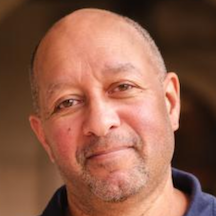 Carl Phillips, a professor of English and African American studies at Washington University in St. Louis, won the Pulitzer Prize in poetry. Professor Phillips was honored for his poetry collection Then the War: And Selected Poems, 2007-2020 (Farrar, Straus and Giroux, 2022).
Carl Phillips, a professor of English and African American studies at Washington University in St. Louis, won the Pulitzer Prize in poetry. Professor Phillips was honored for his poetry collection Then the War: And Selected Poems, 2007-2020 (Farrar, Straus and Giroux, 2022).
 The prize committee said that Then the War is a “masterful collection that chronicles American culture as the country struggles to make sense of its politics, of life in the wake of a pandemic, and of our place in a changing global community. The new poems, written in a time of rising racial conflict in the United States, with its attendant violence and uncertainty, find Phillips entering deeper into the landscape he has made his own: a forest of intimacy, queerness, and moral inquiry, where the farther we go, the more difficult it is to remember why or where we started.”
The prize committee said that Then the War is a “masterful collection that chronicles American culture as the country struggles to make sense of its politics, of life in the wake of a pandemic, and of our place in a changing global community. The new poems, written in a time of rising racial conflict in the United States, with its attendant violence and uncertainty, find Phillips entering deeper into the landscape he has made his own: a forest of intimacy, queerness, and moral inquiry, where the farther we go, the more difficult it is to remember why or where we started.”
Professor Phillips has taught at Washington University since 1993. He was promoted to full professor in 2000.
Professor Phillips is a graduate of Harvard University, where he majored in Greek and Latin. He holds a master’s degree in Latin and classical humanities from the University of Massachusetts Amherst and a master’s degree in creative writing from Boston University.












